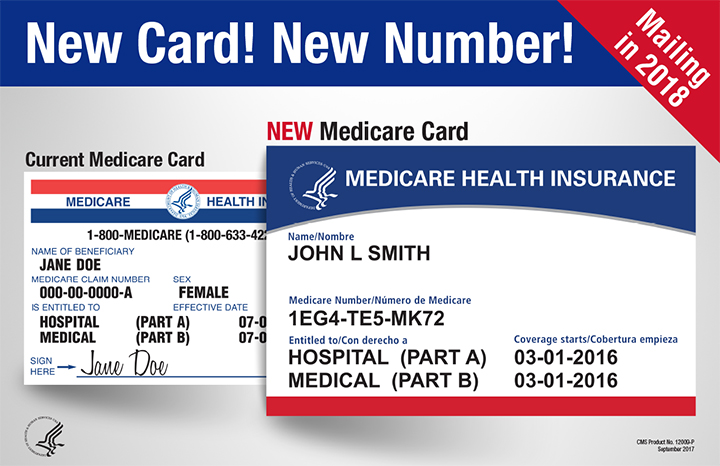New Medicare cards are coming soon. Here’s what you need to know about your new card. Plus, how to avoid related scams.

Starting in April 2018, Medicare will begin mailing new cards to everyone who gets Medicare benefits. Why? To help protect your identity, Medicare is removing Social Security numbers from Medicare cards. Instead, the new cards will have a unique Medicare Number. This will happen automatically. You don’t need to do anything or pay anyone to get your new card.
Medicare will mail your card, at no cost, to the address you have on file with the Social Security Administration. If you need to update your official mailing address, visit your online Social Security account or call 1-800-772-1213. When you get your new card, your Medicare coverage and benefits will stay the same.
If your sister who lives in another state gets her card before you, don’t fret. The cards will be mailed in waves, to various parts of the country, from April 2018 until April 2019. So, your card may arrive at a different time than hers. You can check the rollout schedule to get a better idea when you may be receiving yours.
When you get your new card, be sure to destroy your old card. Don’t just toss it in the trash. Shred it. If you have a separate Medicare Advantage card, keep that because you’ll still need it for treatment.
As the new Medicare cards start being mailed, be on the lookout for Medicare scams. Here are some tips:
- Don’t pay for your new card. It’s yours for free. If anyone calls and says you need to pay for it, that’s a scam.
- Don’t give personal information to get your card. If someone calls claiming to be from Medicare, asking for your Social Security number or bank information, that’s a scam. Hang up. Medicare will never ask you to give personal information to get your new number and card.
- Guard your card. When you get your new card, safeguard it like you would any other health insurance or credit card. While removing the Social Security number cuts down on many types of identity theft, you’ll still want to protect your new card because identity thieves could use it to get medical services.
For more information about changes to your Medicare card go to go.medicare.gov/newcard. And if you’re a victim of a scam, report it to the FTC.
